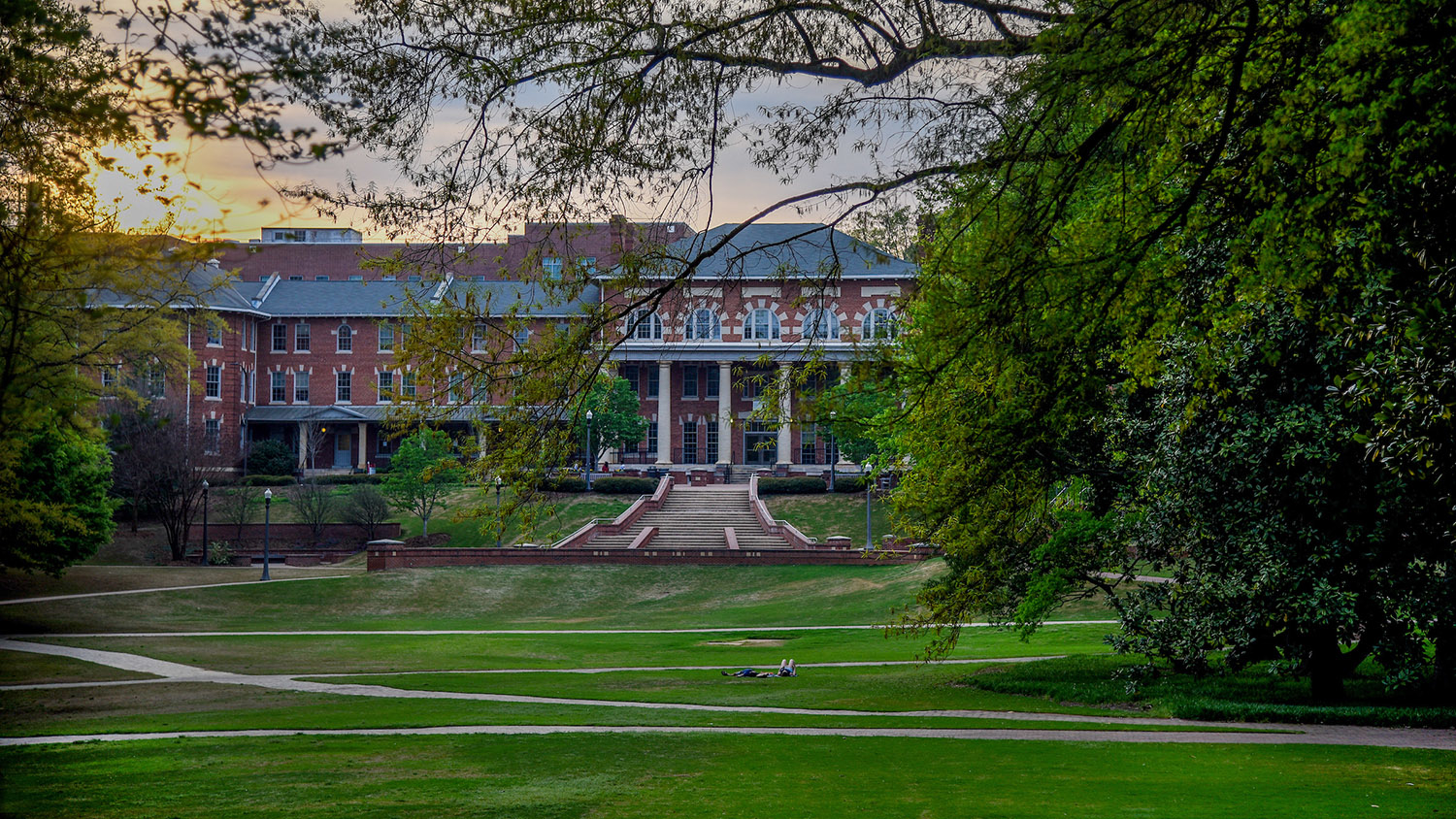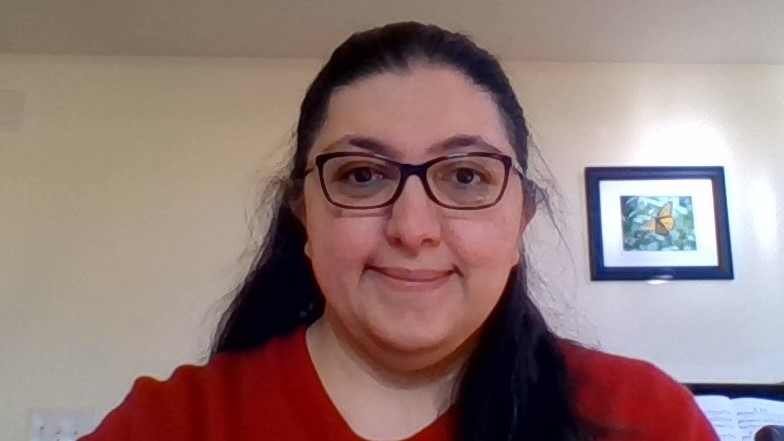Alumni Insights with Daniel Morales, Ph.D. Chemical and Biomolecular Engineering
An informational interview by Srivatsan Ramesh
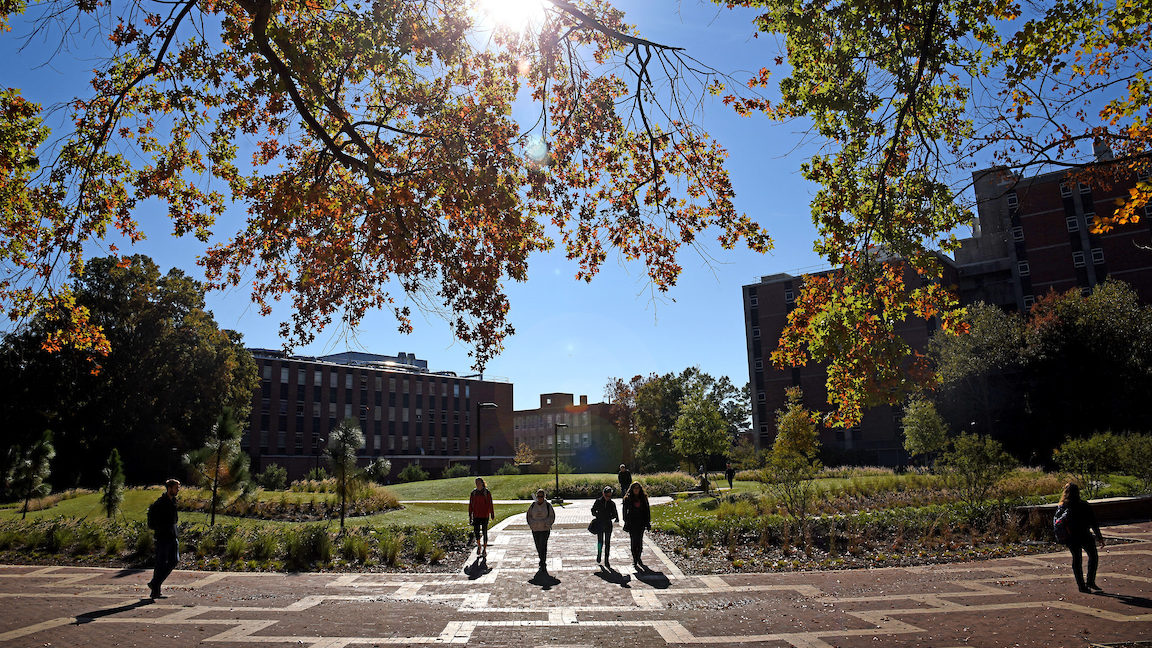
My name is Srivatsan Ramesh and I am a PhD candidate in the Department of Chemical and Biomolecular Engineering. I recently reached out to Daniel Morales, Technical Director of the Consumer-Packaged Goods business at Prescouter Inc. and alumnus of the department and spoke with Morales about his time at NC State, his postdoc journey, and his career trajectory.
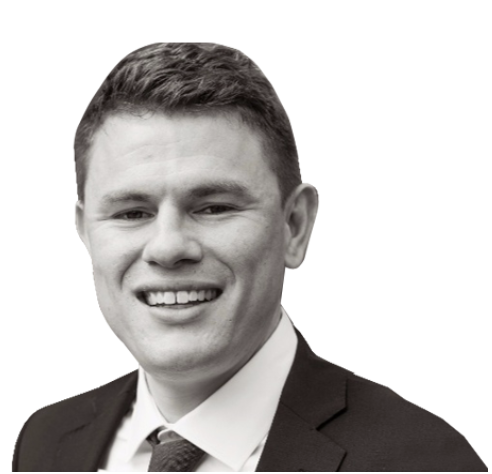
PreScouter provides research support services to help business leaders make better research & development (R&D), product development and corporate development decisions. PreScouter’s custom-selected teams of Advanced Degree Researchers and Subject Matter Experts connect business leaders with new markets, commercializable technologies, industry-impacting startups, and other actionable data. PreScouter’s growing list of 500+ clients include GE Healthcare, Coca Cola, BAE Systems, Whirlpool, and Volvo.
How was your time at NC State and how was your graduate school experience?
I was advised by both Orlin D. Velev, a S. Frank and Doris Culberson Distinguished Professor in the Department of Chemical and Biomolecular Engineering, and Michael Dickey, Alcoa Professor & University Faculty Scholar in the Department of Chemical and Biomolecular Engineering. I had a wonderful experience. I really liked that my research was exploratory where it started off as one project and later morphed into many different things. It can be broadly classified under the umbrella of stimuli responsive gel networks. I also got to do some projects outside of my focus, such as working with ellipsometry to measure the skin properties of the liquid metal, EGaIn (Eutectic Gallium Indium).
How was the transition from academia to industry? Why did you choose to work at Prescouter?
In the third year of my PhD, while I was conducting research, a student from France joined the Velev group as a postdoctoral scholar. We worked closely and developed an iono-printing method to reversibly pattern and actuate hydrogels. I was nearing the end of my work and was trying to decide what I wanted to do next when he invited me to do postdoc work in his group because he had recently accepted an Associate Professor position at INSA in Toulouse, France. A week after my defense, I got married and then moved to France two weeks later to begin my postdoc career in an applied physics group. I explored the possibilities of using hydrogel nanoparticles to direct assemblies on surfaces using nanoxerography. I got to work in a nanoparticle clean room with all the state-of-the-art equipment.
Prescouter Opportunities for Graduate Students & Postdocs
While I was at NC State, I was working for the company that I work full-time for now. It’s called Prescouter. The differentiator of this consulting company is that we hire graduate students and postdoctoral scholars based on our project needs. The company started with the idea of connecting solutions from academia to industry. This enables us to tap into this amazing network of talent and expertise. Moreover, it allows graduate students and postdoctoral scholars to gain industrial expertise when they are still in school. I was involved with Prescouter as a graduate student from the start of my fourth year of my PhD and I continued that throughout my postdoctoral appointment in France. I knew I was interested in consulting through working with them.
Road to Full-Time Prescouter Employment
I was applying to many companies in the US when I was based in France. It was hard to get interviews, but I was flown out for a couple interviews. At that time, my wife had a great opportunity to work at University of North Carolina at Chapel Hill and I had gotten a job offer for a company in Durham called Research Square which I later accepted. It is a company that is focused on providing academic editing and other services for helping first language not English (FLNE) speakers to publish their work. Whether it is video abstract or whether that’s light editing.
Meanwhile, I accepted a part-time position at Prescouter as a project manager, moving out of my role of doing the scholar work to managing projects and being client facing. That is how I ended up back in the Triangle and eventually, a full-time position became available at Prescouter through serendipitous timing. I was enjoying the academic editing at Research Square and learning a whole new skill set that I’d never focused on. But ultimately, I really enjoyed the Consulting and loved the possibility of doing that full time. I thereby transitioned to that role at Prescouter about a year after moving back to the US from my post doc. And I have been in that role ever since.
What does your typical day look like?
When I started out, my role was Project Architect. I was the client-facing manager in between the teams that we staffed, which consisted of post docs, graduate students, and my clients. We are the client’s research assistant. If the client has a technical challenge or wants to know if a technology exists or if it is under development from the academic space, we provide the answers and solutions.
As we have grown more, we have tackled more traditional consulting type engagements where we’re lending insights into business or product development strategy. For example, a client comes to us to know about what the buzz about the microbiome space could mean for their company. They want to understand how it could apply to their company in terms of their product goals and their manufacturer capabilities. We help them using tools such as IP analysis and by understanding the competitor landscape. With me, it started off with projects that I was comfortable doing because of my scientific expertise. But then as I grew into my role, I have now become the technical director of one of our main industrial verticals.
Working at Prescouter
Now, I am involved with any client from the consumer-packaged goods industry that comes through our gates. It could either be me directly managing the project or otherwise managing the project manager. Over time, I have now come to manage 30 to 50 people at a time. It is about trusting my mentoring skills and empowering them to deliver the results. My role right now is exciting, but I am in a transition of having to learn how to manage people in the right way to deliver the right results for our clients. I still have some projects where I am involved in completely and I get to use my technical knowledge and, in the projects where I’m less familiar, I know how to manage the team to be successful.
Something that is unique and slightly intimidating about the job is that this position has enabled me to work with people at very high levels within organizations such as innovation leaders, vice presidents, and chief scientists. You probably would not deal with them on the day-to-day basis if you were working at that company. It is always exciting and stressful to know that you are presenting results that could affect the bottom line of some of these companies, or at other times help their innovation efforts. We interface with and add manpower to the company’s internal consulting and innovation teams looking at innovation strategies for their company. They can also come to us and have our team of scholars scour the academic literature and save them time. We add value by condensing and conveying what is important to know in a large body of literature or patent space in a very short time.
What are the challenges that come along with your current role?
One is translating what the client wants to your project teams. I try to prevent a game of telephone where the client says one thing, I interpret it in one way, and instruct the team in another way. By that time, the project might have morphed into an incorrect task. Another soft skill that I really had to learn is understanding what a client is looking for even if they have not fully understood what they’re looking for. It involves a lot of reading in between the lines and knowing where to look for the right information.
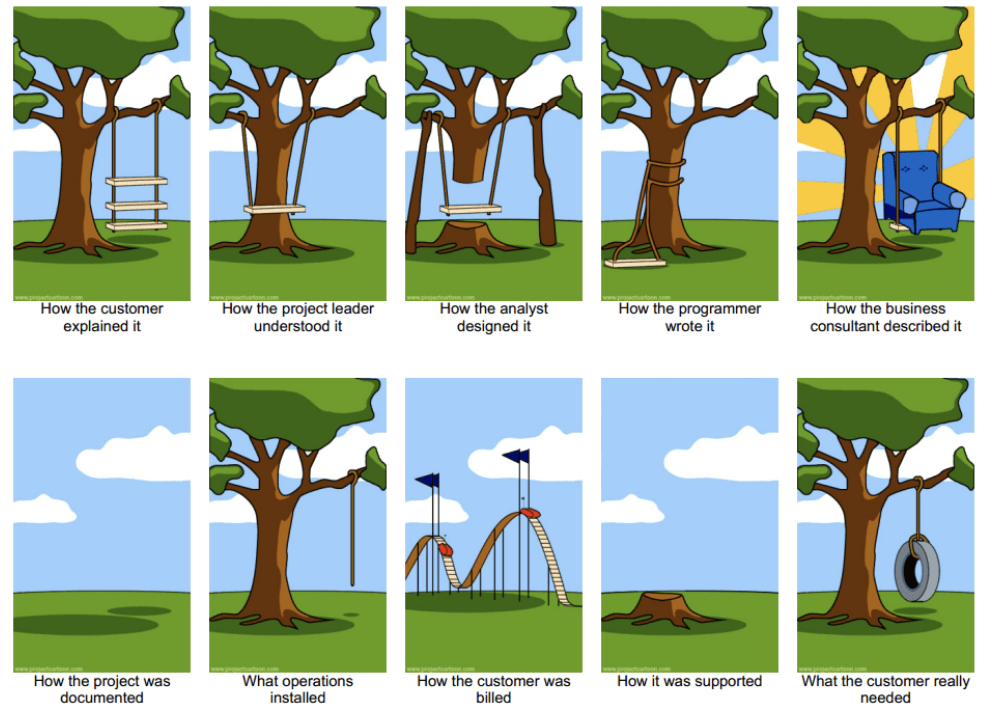
Another challenge is that there are going to be times when the performance of your team is not up to standard. It could have been due to an error on my part or it could be challenges in the project that I did not foresee at that time. Knowing how to reorient the team, keep them motivated, and eventually landing a successful project with value-added results despite a non-satisfactory beginning is important. That helps in earning the clients’ trust. Based on my experience, I now know different templates of project types that I can tease out now when the clients come to me with a problem. Luckily, it is now rarer when I am surprised. But that comes with experience.
The high turnover nature of the teams I work with is also another challenge. It is sad to see the Ph.D. students graduate since we will not get to work with them in the future. We are always helping our scholars by providing them recommendation letters. It is always pleasing when a client hires someone who participated in a project.
On what kind of projects are you currently working?
There are a lot of project trends we have had in the last couple of years that are very promising. There are the ones involving a company’s sustainability goals which are my favorite type of project to work in. We work on finding sustainable and biodegradable alternative materials to replace metals or plastics that are present in the product of our clients.
In the time of COVID-19 and earlier, we have had quite a lot of interest in chemical-free disinfection technologies. It could be exploring avenues using different wavelengths of the electromagnetic spectrum or alternative sources like ozone or plasma-based treatments to disinfect products. This could be relevant to maintaining hygiene and achieving disinfection on the manufacturing floor using either natural or water-free technologies.
I love to know that I’m helping companies work toward increasing sustainability. In 2018, China stopped taking the world’s waste imports for recycling. It resulted in all countries trying to figure out ways to achieve a circular economy. That has led to an emergence of interesting startups that are focusing on recycling methods for traditionally complex waste input streams like PVC, HDPE, candy wrappers or human waste.
What is your style of managing?
I notoriously started off as a micromanager. I wanted to be involved in the details at all times. However, I have learned to empower my team members to understand what success looks like for the client and then trust them to land at the result on their own. The key there has been giving them the tools and strategies to enable them to be successful without micromanaging.
Additionally, I put a lot of time up-front in the planning stages. It is an approach that is very analogous to grad school. The more time you put in planning your experiments, it makes everything proceed more smoothly. I have approached the engagements with my clients with great organization and preparation. I engage with my clients to agree on even smaller details such as the template of formatting of the final report. Once the details are agreed on, the rest of the engagement goes very smoothly.
Are there skills from graduate school that help you with work?
In my day to day job, I still read papers. That is a skill set that is unique to graduate school. Knowing where to find the right information in an academic publication is a skill set that also translates to navigating intellectual property (IP) searches through patents.
The teamwork skills and the writing skills that you acquire from graduate school are very helpful too. The mentoring skills that I acquired while mentoring 2-3 undergraduates in graduate schools has helped me with the project and team management I do today.
Do you remember any workshops or programs that you undertook at NC State that you would recommend to current graduate students?
Everything I did was specific to my research. The Research Triangle Materials Research Science and Engineering Center (MRSEC) used to conduct seminars in which I would participate in.
What does your career trajectory look like? What are your plans with your career?
I definitely love staying at this intersection of being able to dive into science and translating that back to innovation goals for companies. I am grateful to be in that exact role right now and I hope to continue refining my project management skills and keep learning about different industries so that I can get better at providing true strategic insights for my clients. In my current role, it is the chief scientist, CEO, and CFO that are above me. I want to help Prescouter grow in the upcoming years and build my team.
If you had to look back and give your earlier self some advice about navigating a PhD, what would you have to say to them?
You have the freedom to explore scientific curiosities in this unique time of your life and it is something you will not be able to do outside of that. You should take as much ownership of your project as possible and define clear goals for how you see the success of your research being translated. Even though it is hard to have a clear landing spot, knowing what success is for your projects is essential. I wish I had done this in hindsight. Once you have those clear goals, you can save time by planning your experiments well. Take advantage of the opportunities to collaborate and learn as much as you can from your colleagues.
What advice would you give to someone looking into a job in your field?
Business schools at universities have consulting clubs and entrepreneurship competitions. Working with companies like Prescouter during graduate school is a great way to understand if consulting is the right career path for them. I welcome all the scholars of my team to join client meetings. I like to understand who is interested in pursuing consulting as a career and we encourage them to join client meetings to see how we operate. It is a very safe way to learn about the consulting world.
There are other companies that offer similar experiences so you can learn about an otherwise vaguely defined industry. It is more important especially when you are not in an MBA or a business-oriented program.
We are happy to have NC State trainees engage with us!
- Categories:
